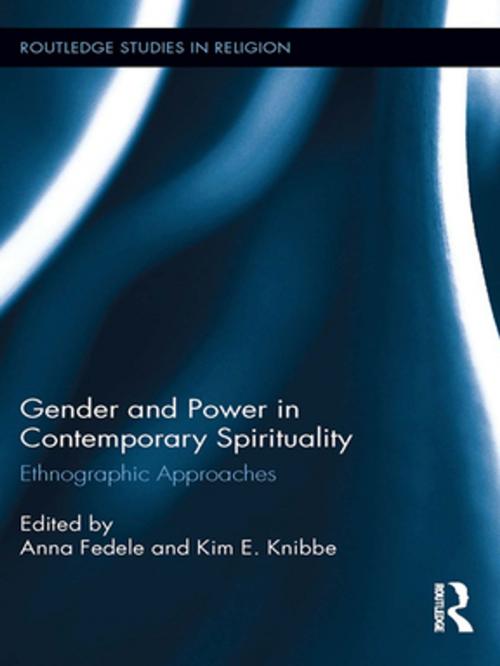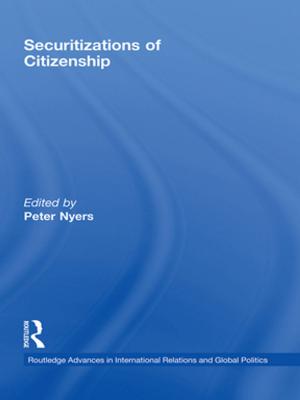Gender and Power in Contemporary Spirituality
Ethnographic Approaches
Nonfiction, Religion & Spirituality, Christianity, Church, Church & State, Inspiration & Meditation, Spirituality| Author: | ISBN: | 9781135114527 | |
| Publisher: | Taylor and Francis | Publication: | March 5, 2013 |
| Imprint: | Routledge | Language: | English |
| Author: | |
| ISBN: | 9781135114527 |
| Publisher: | Taylor and Francis |
| Publication: | March 5, 2013 |
| Imprint: | Routledge |
| Language: | English |
This book explores the entanglements of gender and power in spiritual practices and analyzes strategies used by spiritual practitioners to attain what to social scientists might seem an impossible goal: creating spiritual communities without creating gendered hierarchies.
What strategies do people within these networks use to attain gender equality and gendered empowerment? How do they try to protect and develop individual freedom? How do gender and power nevertheless play a role? The chapters in this book together and separately demonstrate that, in order to understand contemporary spirituality, the analytical lenses of gender and power are essential. Furthermore, they show that it is not possible to make a clear distinction between established religions and contemporary spirituality: the two sometimes overlap, and at other times spirituality distances itself from religion while reproducing some of its underlying interpretative frameworks. This book does not take the discourses of spiritual practitioners for granted, yet recognizes the reflexivity of spiritual practitioners and the reciprocal relationship between spirituality and disciplines such as anthropology. The ethnographic descriptions of lived spirituality included in this volume span a wide range of countries, from Portugal, Italy, and the Netherlands to Mexico and Israel.
This book explores the entanglements of gender and power in spiritual practices and analyzes strategies used by spiritual practitioners to attain what to social scientists might seem an impossible goal: creating spiritual communities without creating gendered hierarchies.
What strategies do people within these networks use to attain gender equality and gendered empowerment? How do they try to protect and develop individual freedom? How do gender and power nevertheless play a role? The chapters in this book together and separately demonstrate that, in order to understand contemporary spirituality, the analytical lenses of gender and power are essential. Furthermore, they show that it is not possible to make a clear distinction between established religions and contemporary spirituality: the two sometimes overlap, and at other times spirituality distances itself from religion while reproducing some of its underlying interpretative frameworks. This book does not take the discourses of spiritual practitioners for granted, yet recognizes the reflexivity of spiritual practitioners and the reciprocal relationship between spirituality and disciplines such as anthropology. The ethnographic descriptions of lived spirituality included in this volume span a wide range of countries, from Portugal, Italy, and the Netherlands to Mexico and Israel.















